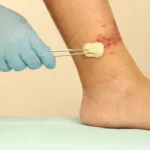Choosing the right dermatologist can make a significant difference in your skin’s health and appearance. From diagnosing complex conditions to providing personalized treatment and care, a skilled dermatologist combines medical expertise with a deep understanding of skincare. Here’s what makes a great dermatologist:
Demonstrating Medical Expertise
A great dermatologist possesses comprehensive medical knowledge. This foundation begins with extensive medical school training, followed by a specialized dermatology residency. Top-tier dermatologists often pursue further fellowships to become experts in specific areas, such as pediatric dermatology, dermatopathology, or Mohs surgery for skin cancer. This advanced training equips them to handle a wide array of complex skin conditions, from common acne and eczema to rare genetic skin disorders.
A commitment to ongoing education is fundamental. The field of dermatology is constantly evolving with new research, treatments, and technologies. A great skin specialist stays current with these advancements through continuous learning, attending conferences, and reading medical journals.
Applying Diagnostic Skills
Dermatology is a highly visual field, and a great dermatologist has sharp diagnostic skills. They can often identify skin conditions by examining the skin’s appearance, but their expertise goes deeper. They use a systematic approach, gathering detailed patient history and performing thorough examinations to provide an accurate diagnosis. When a diagnosis is not immediately clear, a skilled dermatologist draws on strong problem-solving abilities. They may order specific tests, such as skin biopsies, blood work, or allergy tests, to gather more information.
Communicating With Empathy
Technical skill alone does not make a great dermatologist. A great skin doctor demonstrates empathy and excellent communication skills. They listen carefully to a patient’s concerns, understanding that skin conditions can significantly impact a person’s quality of life and self-esteem. They encourage open dialogue, which creates an environment that fosters trust and supports effective treatment.
Patient education is another key component. A great dermatologist takes the time to explain the diagnosis and treatment plan in clear, understandable language. They make sure the patient understands their condition, the purpose of each treatment, and how to manage their skin care at home.
Delivering Personalized, Long-term Care
A great dermatologist focuses on personalized care. They recognize that each patient is unique and that a one-size-fits-all approach is rarely effective. Treatment plans are tailored to account for the patient’s specific condition, skin type, lifestyle, and individual preferences. This customized approach aids better clinical outcomes and significantly enhances patient satisfaction.
Preventive care is another key aspect of excellent dermatological practice. A skilled dermatologist is proactive in educating patients about the significance of protecting their skin from sun damage. They emphasize the use of sunscreen, protective clothing, and other preventive measures to minimize harm from UV radiation. They also recommend and conduct regular skin cancer screenings, identifying potential concerns before they become serious health risks.
Long-term skin health relies heavily on awareness and early intervention, which is why patient education is a continuous commitment. Dermatologists teach patients how to monitor their skin for suspicious changes, such as new moles or changes to existing ones. This strategy empowers patients to be active participants in their own care.
Consult a Certified Dermatologist Today
A dermatologist combines deep medical expertise and strong diagnostic abilities with empathy, clear communication, and a commitment to personalized, long-term patient care. These qualities help you receive the highest standard of treatment for your skin, hair, and nails. Contact a certified dermatologist near you to schedule your consultation today.











